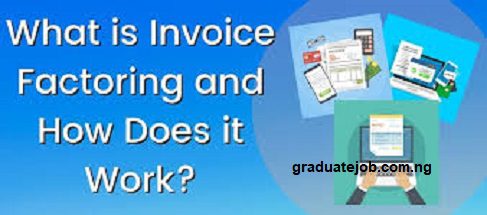Are you ready to know what invoice factoring is and how it works? Keep following to be enlightened.
As a small business owner, at some time, you will be challenged by the shortage of funds when you have important expenses to cover.
For example, if you assumed that your customer would complete their invoice payment on time, you can use those funds to cover your expenses.
As your customer will end up paying late and now, you’re left short of cash. To raise funds at that time is hard especially when you’re just starting. Maybe that is why you should give invoice factoring a go!
READ MORE: What Is Invoice Factoring? How Does it Work?
What Is Invoice Factoring?
With invoicing factoring, a business sells any number of unpaid invoices to the factor for less than the amount it is owed.
In return, the business receives the majority of the invoice amount – as much as 90% – within a few business days, rather than having to wait for the 30, 60, or 90-day period specified on the invoice.
Moreover, in factoring situations, the factor becomes responsible for collecting the invoice.
When the factoring company receives full payment of the invoice, they pay the balance of what is owed to the seller, to keep the percentage of the total invoice amount as revenue.
How Does Invoice Factoring Work?
In a business situation, a company that makes the sale, to creates an invoice and sends it to the customer.
Moreover, 30, 60, or 90 days after the good or service is delivered, as stipulated on the invoice, the buyer pays for the purchase and the company gets its money.
But what if the company finds itself in a position where, for several reasons, it can’t wait?
With invoice factoring, the company can sell the invoice to a third party, called the factoring company or factor that buys unpaid invoices at a discount.
However, the factor negotiates the amount they are willing to pay and agrees to payment terms. A certain amount will be paid upfront, with the remainder being paid after the factor is collected.
Remember, that not every invoice is a good candidate for factoring. Most factors won’t buy that are already past due and many won’t buy invoices whose payment terms exceed 90 days.
To determine whether to purchase an invoice, the factoring company will examine the business customers and the likelihood they will remit the full value of the invoice.
To the present moment, the factor will look at the customer’s credit ratings, then assess their accounts payable performance and consider other issues that can affect payment, like outstanding litigation.
Furthermore, the factor must also ensure the invoice is valid which could include a review of shipping statements and other documentation.
Most factoring agreements are a recourse provision, meaning the company selling the invoice must return some or all of an advance cash payment if a customer doesn’t play.
Oppositely, the factor will assume the risk of non-payment in the non-recourse factoring arrangement. as the non-recourse factoring carries a high fee.
READ MORE: A Complete Guide to Invoice Factoring for Small Businesses
When Should Companies Use Invoice Factoring?
The invoice factoring makes the most sense for growing businesses with good but often slow-paying customers.
The definition of slow is relative to the business point of view, but when the standard net is 30 payment terms can be problematic if the invoice is a big part of the company revenues.
Moreover, this can make or break the company’s ability to take advantage of the new business opportunity.
Particularly, if it does not have a long business history or collateral to secure a kind of credit with the bank or if a decision must be made before a loan application process can be completed.
This brings us to one of the benefits of making use of factoring: the company’s credit matters less than that of its customers who are, after all, the ones who will be paying the factor.
However, the business can also turn into factoring so its employees in finance don’t have to spend time on collections that are frustrating and thankless activities.
Advantages of Invoice Factoring
A business can be considered invoice factoring for the following reasons:
● Fast Receipt of Cash
Companies that work with third-party factors receive a good portion of the value of their invoices within a few business days sometimes within 24 hours.
● Removal of Likely Distraction
Slow-paying customers and those whose bills are overdue can cause big headaches, especially for small businesses.
Maybe the owner has to follow up on the late invoice, that’s time not spent with other customers or on higher-value activities.
● Quick Approvals with Bank Loans
Bank loans are certainly possible for access to cash. But it can take a long time to get and for small businesses, it can be capped at levels that limit the company’s ability to grow.
Moreover, the approval for the invoice factoring is quick and gives the arrangement works, factors that provide more cash than banks.
Disadvantages of Invoice Factoring
● It Requires a Big Commitment
Factoring companies usually provide what is called “spot,” or selective, factoring, meaning that they give their services for a single invoice.
● It Can Be Expensive
Due to the bank loans, the factor fees partially depend on perceived risk, though with factoring, the credit assessment is the company customers, not the company itself.
Also, where the risk of nonpayment is low, factor fees that are generally several percentage points higher than the business that will pay in Interest to the bank loan.
READ MORE: Complete Guide to Invoice Factoring
Conclusion
Cash flow constraints are undeniable business impediments. So invoicing factoring is one way to address the problem. To sell unpaid invoices to the third-party factoring company, the business receives the majority of the value within a few business days.





